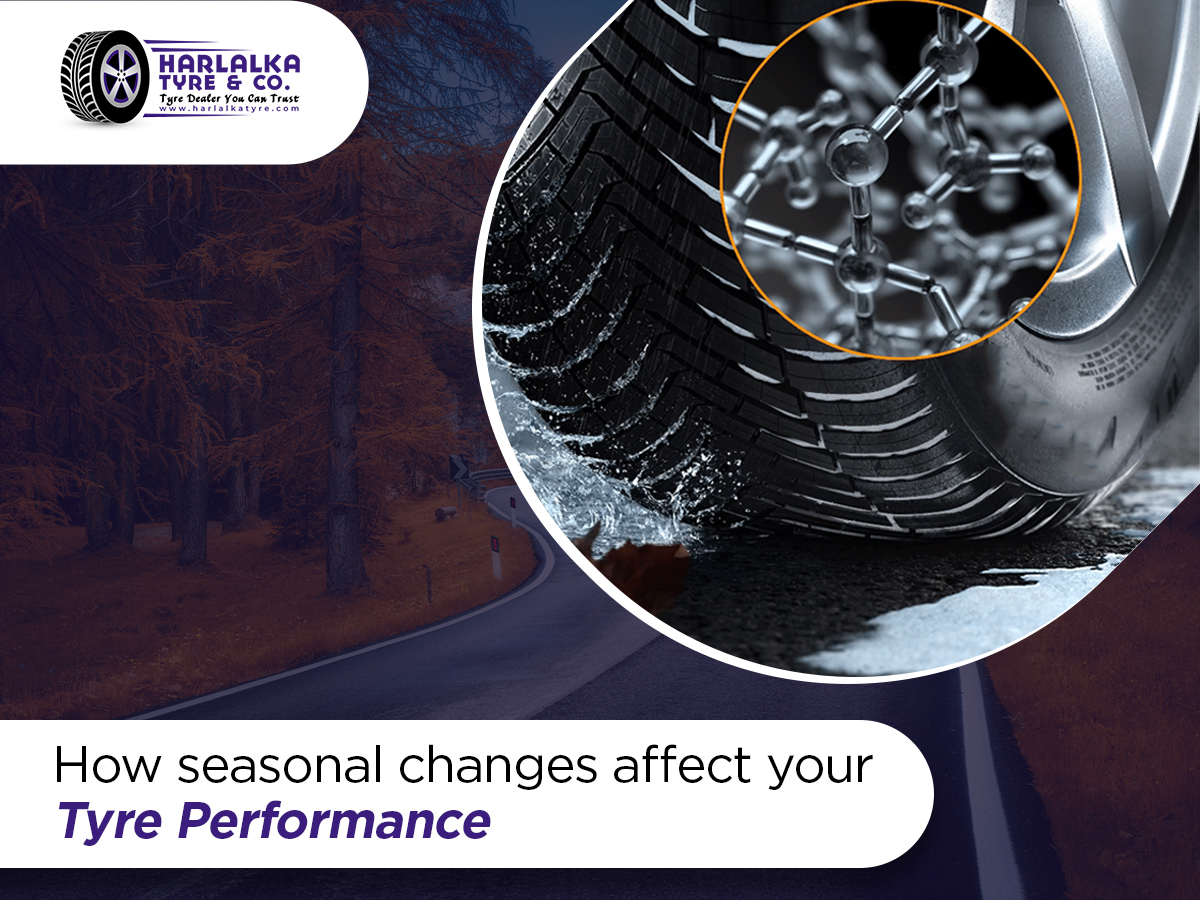






April 14th, 2025 by harlalka
You might not know this but your car tires might get stiffer if the temperatures outside are freezing and this can make it rather hard for them to grip the road properly. During summers when it is scorching outside your tires might wear down quicker and this is especially so when the pavements are hot. Have you ever felt that your tires are looking more worn out after a summer road trip or perhaps the vehicle is feeling a bit off the first time you take it out for a drive after the winter? There are good reasons for that.
Factors such as temperature shifts, road conditions, and moisture levels affect tire performance. You must understand these factors to avoid unexpected problems.
The effect of winter on tire performance
It is not that you would have to deal with feet of snow during winters but that does not mean that your tires would have it any easier. There are several reasons why winter is tough on your car tires. The cold air lowers tire pressure, rubber becomes stiffer in such lower temperatures, you may have to deal with hidden ice patches depending on where you are living and/or driving in India, and the roads suffer different forms of damage such as potholes. Every time the temperature drops by 10 degrees the pressure in your car tires can decrease by 1-2 PSI (pound-force per square inch).
Tires are made from rubber compounds that are designed to be flexible but the rubber hardens when temperatures drop.
The effect of spring on tire performance
Spring is not just about warmer weather – it is also about correcting all the wear and tear your tires suffered during winter and getting ready for the increasing temperatures ahead. This is the time when the wear and tear we referred to is still lingering and the roads tend to be wet because of increasing rain. The inflation of your tires is also affected because of the temperature swings. Your car tires can become weaker because of the cold weather, moisture, and potholes and this can lead to hidden damage that does not become evident immediately.
The roads become slippery because of spring showers.
The effect of summer on tire performance
During summers the pavements are scorching, you are probably driving at high speeds, and you are going on those long road trips as well. All these can put additional stress on your tires which increases the risk of wear and tear, blowouts, and overheating. The extreme heat at this time puts more pressure on the tires, and the wear is accelerated thanks to the hot pavements. If the car is carrying heavy loads it also puts extra strain on the tires. Hot temperatures put more pressure on car tires – the exact opposite of what cold temperatures do to them.
Thanks to such weather conditions the tires can become soft and wear down quicker than they would normally do.
The effect of fall on tire performance
Even as the heat of summer reduces your tires go through yet another round of adjustments. During fall you may not have to deal with extreme conditions such as summer or winter but this is a season of transition all the same. This means that there are unpredictable road hazards and the maintenance concerns may be easily neglected. The pressure in your car tires can fluctuate because of the cold mornings and warm afternoons, they could be damaged because of hidden debris in the road thanks to the summer construction, and you have wet leaves that have the same effect on your car tires that icy roads do.
This time of the year, temperatures fluctuate throughout the day and this affects your the performance of your car tires as well.
So, as you can see for yourself, each season has a unique set of challenges for your car tires to deal with such as temperature swings, changing conditions of traction, road debris, and your tires taking a hit each time you drive. The good thing about all this is that with little maintenance each season, you can take some significant steps in preventing premature wear, poor handling, and blowouts. So, rather than waiting for something to be wrong with your car check your car tires habitually each time a new season is in the offing. Monitor the tire pressure when temperatures fluctuate, never ignore even the smallest signs of wear, and inspect the tread before you drive in icy or wet conditions.